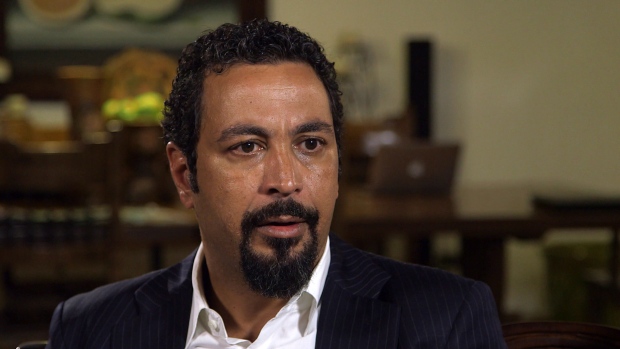
By Joseph Loiero, CBC News
A controversial Canadian businessman has been languishing in a Dominican Republic prison for over two years — without a trial or prospect of release in a country notorious for a corrupt judicial system. Antonio Carbone, a Toronto-area casino executive, is facing charges of fraud and attempted murder.
Along with his brother Francesco, Carbone is one of the founders of the Dream Casino group — a multimillion- dollar Caribbean venture that has resulted in a series of lawsuits and countersuits revolving around the ownership and control of the company. Carbone remains in prison despite being granted bail. He was to be freed in January. But a judge ruled that he will continue to be held under a preventive detention order, which will keep him imprisoned for the foreseeable future.
In a recent exchange with The Fifth Estate, Carbone asserted that he was unfairly denied a bail hearing for almost two years and that there is a massive conspiracy to keep him removed from the casino project.
- Key statements contradicted in attempted murder case
- CBC INVESTIGATES | Philanthropist Michael DeGroote paid Vito Rizzuto associate $500,000 amid casino dispute
He noted that the former lead investigator in his case, Isidro Vasquez Pena, was arrested and charged with soliciting a $125,000 bribe in another case. And the judge who originally sentenced Carbone to a year of preventative custody, Margarita Cristo Cristo, was recently removed from her position for corruption.
”You can see the amount, or the effect of abuse of power that’s been involved. Since day one,” he told CBC News.
Carbone is currently being sued in Canada for allegedly defrauding a Dream Casino investor of around $100 million. He is also facing fraud charges in the Dominican Republic for allegedly trying to manipulate shares of the company in his favour. He denies both allegations. At issue in the attempted murder case is the carbombing of a Jaguar belonging to a Dream Casino manager Fernando Baez, with whom the Carbones had a falling out, on Dec. 1, 2014. Carbone was arrested for it in January 2015. But there are serious questions of credibility relating to the evidence against him, including contradictory statements by the chief witness, Juan Infante. Infante said in court documents he heard the Carbone brothers in the Dominican Republic celebrating their role in the bombing, but the Carbones provided The Fifth Estate with a WestJet letter that shows Antonio was in Canada the day Infante says he heard them celebrating.
Perhaps the biggest hole in the accusations comes from the would-be victim, Fernando Baez. Baez originally said in a statement to the district attorney that he narrowly escaped the blast and was alive only by chance. Yet Baez subsequently told The Fifth Estate he was driving a different vehicle — not the Jaguar — when he came home from work that day, and that he was already up in his penthouse apartment when he heard an explosion. Carbone blames his continued detention on Baez and what he says is a plan to remove him and his brother from the Dream Casino project.
“This was all a plot, scheme to defraud the Carbones from day one of their assets,” he said. “Dream was estimated at $540 million so we’re talking about the largest… conspiracy in the Dominican Republic.”
Carbone and his family have reached out to Global Affairs Canada to intervene on his behalf numerous times over the past couple of years. Canada’s ambassador to the Dominican Republic, Steve Cote, said in a March 2016 letter to Carbone’s family that officials have “advocated” on his behalf.
“The allegations you are citing regarding corruption and extortion are taken seriously,” Cote wrote.
CBC News reached out to Cote’s office for further comment but did not receive a reply.
Still locked away, Carbone says he regrets ever getting involved in Dream Casino. He has lost control of his business, hasn’t seen his family in almost two and a half years, and says he fears for their safety if they were to visit the Dominican Republic.
“It breaks my heart. They haven’t been able to come to the country,” he said. “I could not expose them to come here and being exposed to… possible violence or death attempts on their lives.”
Source cbc.ca


Be the first to comment